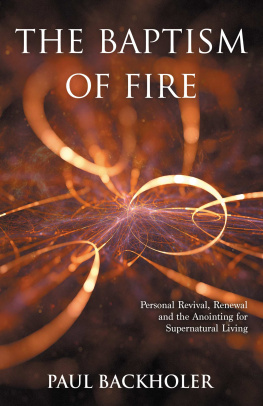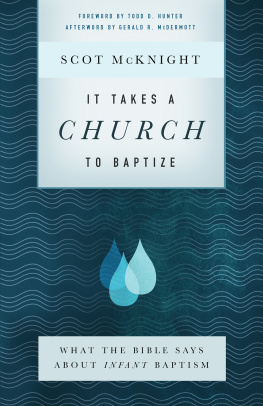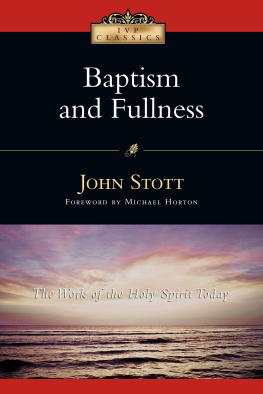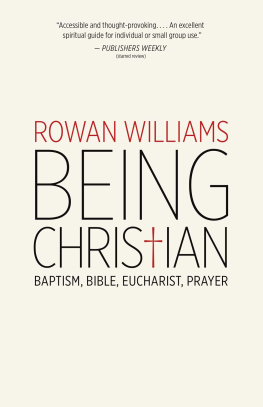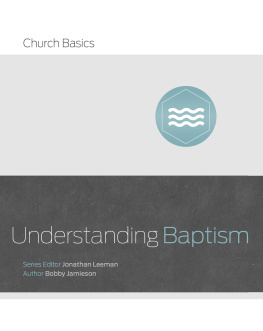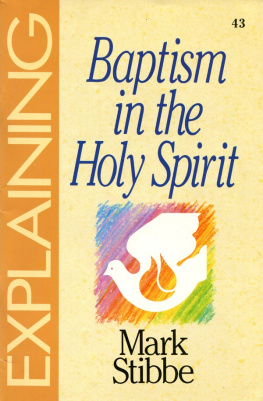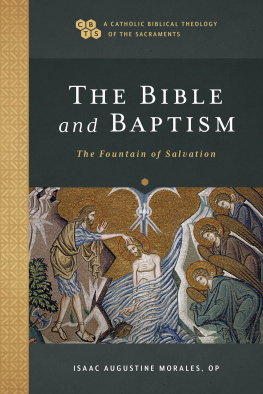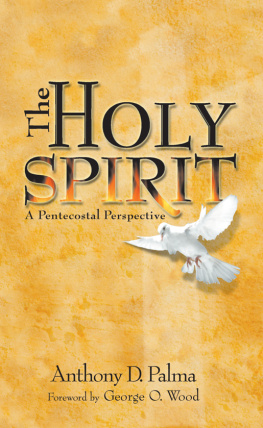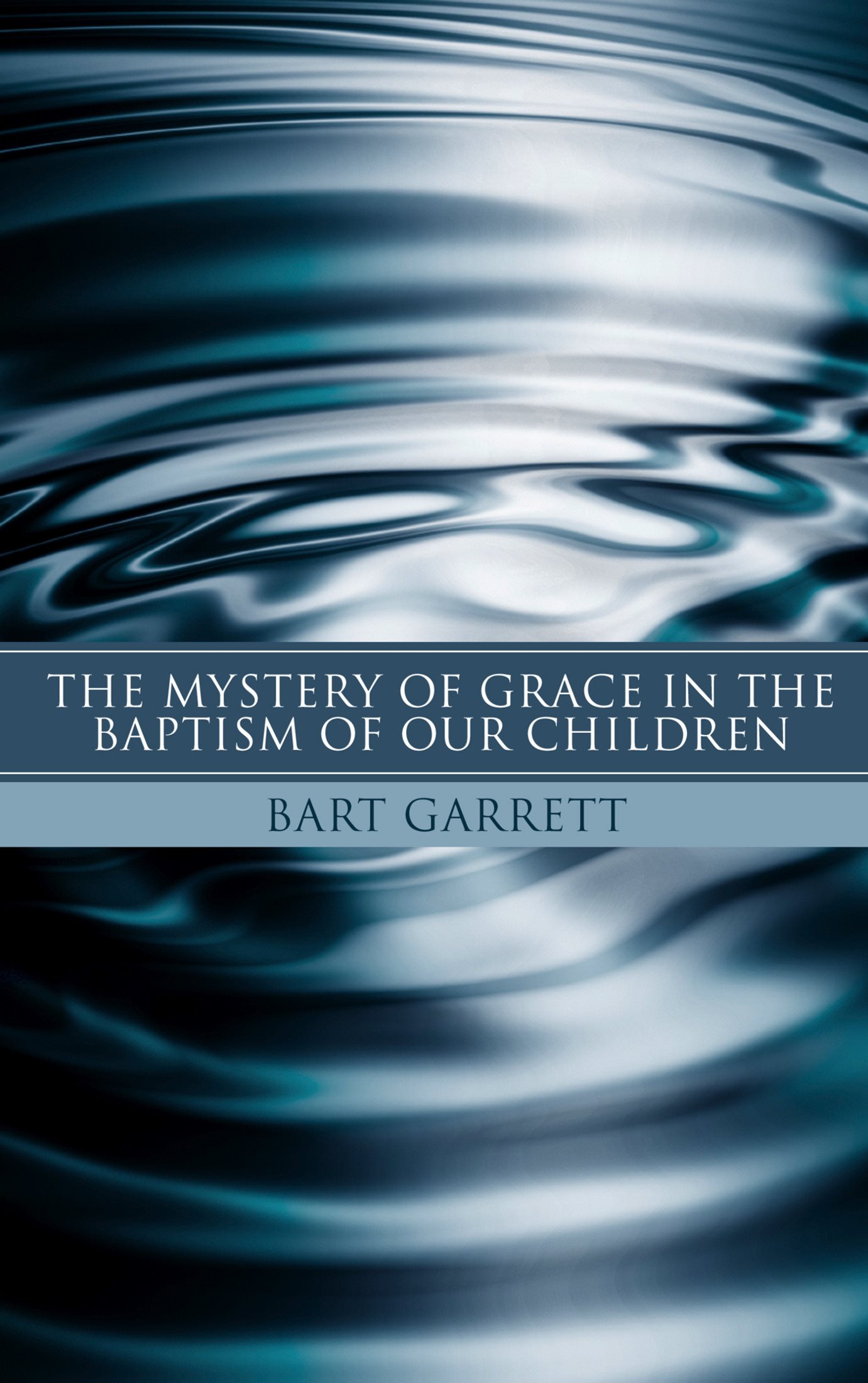Acknowledgments
S pecial thanks to my beautiful bride, Katie, and our three, precious little girls, each a blessing wrapped in a promise.
Thanks to my parents, hands that are steady, character that is deep, and a faith that seems unwaveringI learn from you both. From Corrie, a posture that questions the status quothanks for challenging me!
Thanks to Jonathan St. Clair, my partner in ministry and faithful friend. We share a brain, and he brings order to my abstraction. Thanks also to Scott Jones and Eric Youngblood. The three of us were inseparable in graduate school, and these two men are an integral part of who I am as a pastor.
Finally, it is rare for a day to go by when I do not stop and think: What would Richard Pratt have to say about that? Thanks Richard, for your voice that forever remains in the ear of your students.
Chapter 1
Pastoral Counsel
W isdom is the God-given ability to discern which issues are most and least significant, which issues are most and least clear. Wisdom helps us distinguish between a mere preference, which is to be held more loosely, and a conviction, which should be held more tightly. Many biblical scholars have demonstrated quite adequately that baptism should be limited to people who have made a profession of faith in Christ and that the practice should not include their children. Other scholars have demonstrated quite adequately that baptism should be extended to those who have professed faith in Christ and to their children. Years ago, as a graduate student, I wrestled with great intensity over this issue. For months, on my bedside table was a stack of about twelve books, precariously positioned, suspended over the pillow on which I slept. Typically, on the subject of baptism, I held to the convictions of the author of the book that sat upon the top of the stack. Needless to say, my opinions on the matter changed every other week.
As people get older they become more certain of fewer things. We begin to understand that there is really a lot that we do not know; yet what we have come to know we hold with even greater fervor and passion than we once did. What are the few things that I am most certain about? Christ died. Christ has risen. Christ will come again. And these three are clear enough in the Scriptures, which we believe speak to us with authority because they come from God. Finally, my only comfort in both life and death is that I am utterly dependent on Jesus for salvation, and I trust that he will come through brilliantly in the end, completing the work of refining someone as selfish and insecure as I am.
Please recognize that baptism is a very important issue, but I do not think it is an essential one. If it were, then while on the cross, Jesus would not have refused the wine-soaked sponge, but would have accepted it in order to sprinkle some on the thief that had just trusted in him for salvation. Yet, instead, with no formal baptismal rite, Jesus responded: Today, you will be with me in paradise. It is important that sincere parents come to resolution on this issue. Yet, I am not so sure that their resolution will arise from calculated study and an effort to gather and collect all of the data. There is simply too much to consider on both sides of this issue. Rather, resolution will hopefully come with a sincere submission to the authority of the pastor that serves your respective church.
As a pastor, I long for the day when parishioners will again exercise confidence and trust in their church leadership. With the scandal of sexual and financial impropriety dotting the clerical landscape, I realize that this is a grandiose request. Yet, the Bible is full of admonitions that beckon believers to submit to the authority of their pastors and shepherds. I recognize that the term, authority, today is fraught with negative connotation, yet it is important to recognize that all of us submit to authority, whether that authority be the authority of autonomy or whether is be the authority of a particular belief system or ideology. The chief reason that I pastor a church that belongs to a larger denomination is this one: I want to shepherd our people while in submission to many leaders who are more seasoned, and thus, more wise, than I am. I need the accountability. Our church needs the accountability. In a society where large corporations are granted privileges and incentives permitting them the power to make unwise decisions unilaterally, it is important to me that the church remains in submission to the accountability of a larger entity like a denomination.
Likewise, there are many perplexing issues like baptism that create opportunity for sincere church members to submit their confusion and uncertainty to the counsel of the pastoral leadership. On these important, yet non-essential issues, allow the leadership to shape policypolicy that has been wrestled through with a certain degree of theological skill and expertise. Then, be willing to embrace the outcomes. The Bible teaches that teachers will be held to a higher standard of accountability, thus, take the pressure off of your own shoulders and let us bear it for you. Baptism is a very important issue. It is not an essential issue.
See James 3:1.
I choose to highlight deference to ones authority, not because it is primary, but because, today in America, it is largely treated as ancillary. Difficult decisions like these are best made from various sources of input, from our present community, from its leadership, and from our personal convictions as they are informed by the Scriptures.
Chapter 3
Mode and Meaning
S ometimes pastors from other denominations voice their concerns to me about our practice of infant baptism, and their concerns can be lumped into two categories: (1) the mode of infant baptism, and (2) the meaning of infant baptism. The mode refers primarily to how much water is used in the application of baptism. Is water sprinkled over the one receiving the baptism? Or, is it poured? Is the person dipped in water or completely immersed under the water? This booklet will only address the meaning of baptism simply because, in my opinion, the mode of baptism is of little or no consequence. If you agree with me on this point, then feel free to skip over this section, but for those who might not, it is appropriate to offer my rationale, albeit a brief one.
When baptism is mentioned in the New Testament it often involves the subject going down into the water (Acts 8:38) or poured over the mercy seat of the Ark of the Covenant; they were never completely submerged in blood (thank goodness).
The Greek word for baptism ( baptizo ) has a much broader range of meaning (semantic range) than the tightly defined to immerse. Now, most certainly, to immerse is a valid translation, but so is to wash, to dip, to sprinkle, to suffuse, or to pour. The simple point is that what was meant by the term, baptizo , is not precisely clear to us today. Perhaps people were immersed completely, or perhaps they waded out into the water and then had the water sprinkled or poured over their heads. We are not sure. In fact, the only baptism in the New Testament that mentions the type of mode explicitly is the Baptism of the Holy Spirit in which the Spirit is poured over the church at Pentecost.


